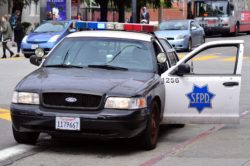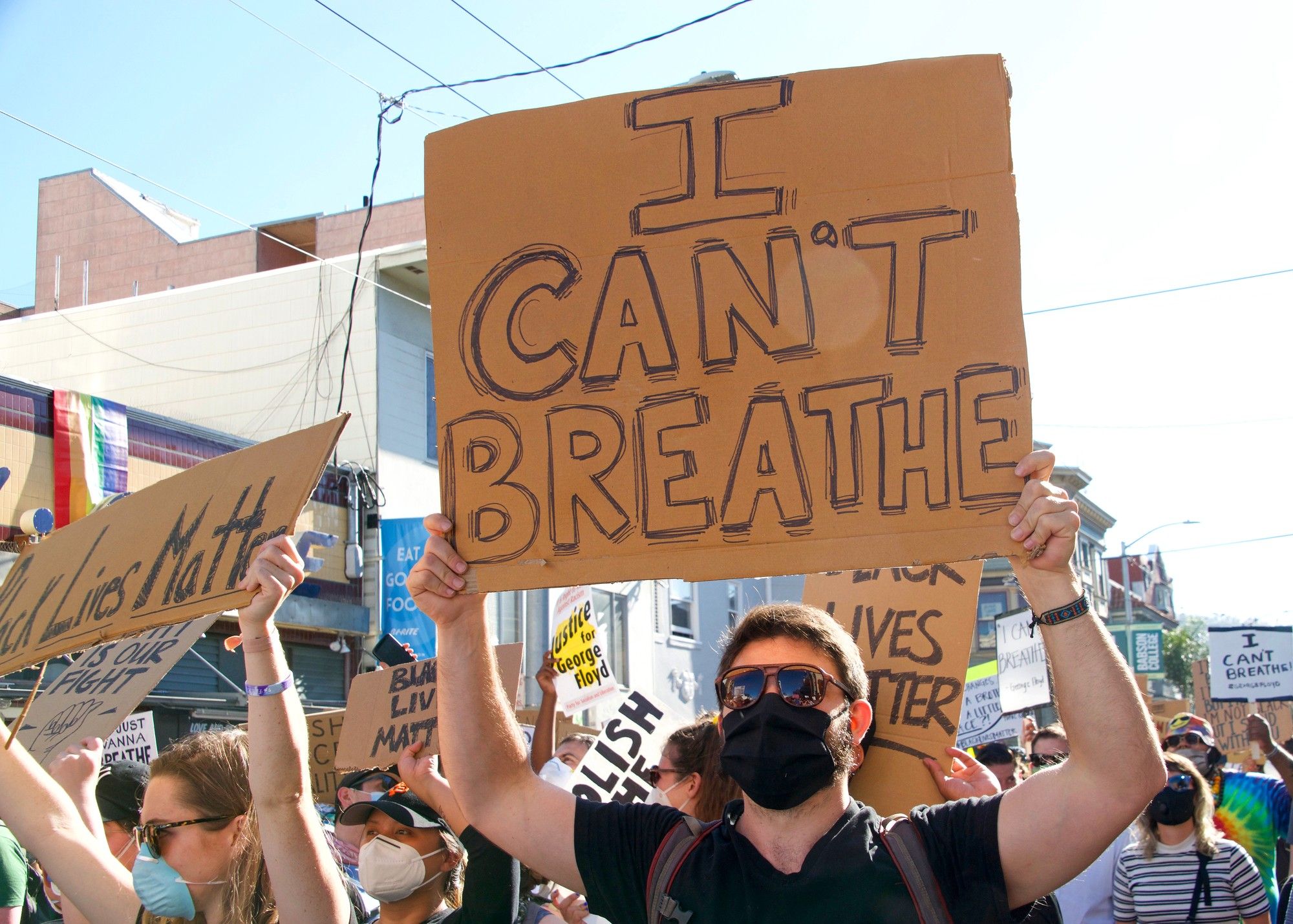Top Class Actions’s website and social media posts use affiliate links. If you make a purchase using such links, we may receive a commission, but it will not result in any additional charges to you. Please review our Affiliate Link Disclosure for more information.
Three California residents have filed a lawsuit accusing the San Francisco Police Department (SFPD) of using a private network of surveillance cameras to spy on racial injustice protesters.
Lead plaintiff Hope Williams and two other plaintiffs organized and participated in protests against racial injustice and police violence in San Francisco in May and June, following the death of George Floyd at the hands of Minneapolis police, according to the San Francisco Chronicle.
They say that between May 31 and June 7, the San Francisco Police Department spied on protesters “in real time” using a private network of more than 400 surveillance cameras.
According to the lawsuit, the department’s actions “chills” the plaintiffs from participating in or organizing any protests in the future.
The plaintiffs also say their efforts to recruit activists and organize protests against racial injustice have been undermined.
According to an Associated Press report, in 2019 San Francisco banned the use of surveillance technology without prior approval from the city’s board of supervisors, except in emergencies. That ordinance is known as the Acquisition of Surveillance Technology Ordinance.
The Union Square Business Improvement District (USBID) in San Francisco is a nonprofit corporation that operates a network of more than 400 surveillance cameras in an area where protests were taking place over the summer, according to the lawsuit.
The high-definition cameras allegedly allow for remote zooming and focus adjustment and are connected with software that can analyze content.
According to the lawsuit, an SFPD Homeland Security Unit officer emailed USBID’s director of services to request “real-time use” of the cameras on Market Street “‘to monitor the potential violence today for situational awareness and enhanced response’” during the racial injustice protests.
The department was granted use of the cameras for 48 hours, the lawsuit states. That permission was later extended through June 7 at the request of the Homeland Security Unit.
On June 10, the officer who had requested the extension emailed again to thank the USBID director of services for granting access to the cameras, which “‘were extremely helpful in giving us situational awareness and ensuring public safety during the multiple demos that came though the area.’”

Williams and the other plaintiffs claim the surveillance violated their rights to privacy and free speech.
According to Williams’ lawsuit, the SFPD has a history of unlawful surveillance.
At many times throughout the 20th century, the department allegedly conducted surveillance, including on “establishments frequented by the LGBTQ+ community,” on organizations during the 1984 Democratic National Convention and on “political groups challenging U.S. intervention in Central America.”
In addition, the SFPD allegedly maintained files on more than 100,000 San Franciscan civil rights demonstrators, anti-war activists, labor union members, and others.
Williams’ lawsuit argues that Black Lives Matter racial injustice protests have been “similarly monitored and baselessly treated as a potential threat” by law enforcement across the U.S.
“The growth of this movement has coincided with the proliferation of modern surveillance technologies that give the government unprecedented power to identify, track, and target activists,” the lawsuit states.
The SFPD itself has obtained an “arsenal” of surveillance equipment over the last several years, the lawsuit alleges.
The plaintiffs believe the SFPD’s history of surveillance along with the surveillance made possible through the use of technology led the board of supervisors to pass the Acquisition of Surveillance Technology Ordinance, which went into effect July 15, 2019.
The protesters are seeking a declaratory judgment that the city and county violated the city’s Acquisition of Surveillance Technology Ordinance by using a private camera network without prior approval.
They are also seeking an injunction to keep that from happening again, as well as attorneys’ fees, costs and any other relief deemed appropriate by the Court.
Do you think police were justified in using surveillance during the racial injustice protests? Do those protesting racial injustice have a right to privacy? Let us know your thoughts in the comments.
The plaintiffs are represented by Saira Hussain and Adam Schwartz of the Electronic Frontier Foundation, and Matthew Cagle of the ACLU Foundation of Northern California Inc.
The San Francisco Police Protester Surveillance Lawsuit is Hope Williams, et al. v. the City and County of San Francisco, Case No. CGC-20-587008, in the Superior Court of California in and for the County of San Francisco.
Read About More Class Action Lawsuits & Class Action Settlements:
Amazon Says Race Isn’t An Element In Whole Foods Racial Bias Class Action Lawsuit
Omaha Protesters File Excessive Force Lawsuit















